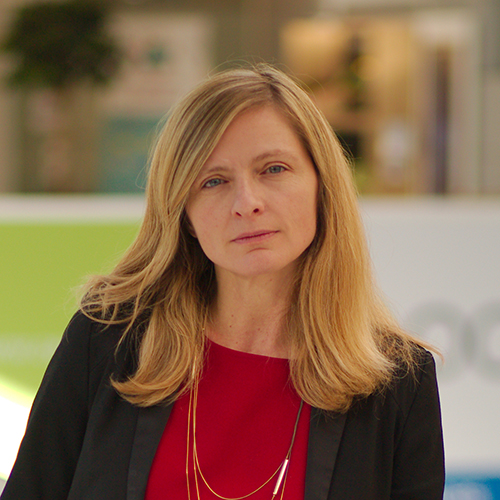Romina is the Director of the OECD WISE (Well-Being, Inclusion, Sustainability and Equal Opportunity) Centre, where she promotes the OECD’s position as a leading international institution in the area of well-being, inclusion, sustainability and equal opportunity, and contributes to strengthening OECD research and advice on the Beyond GDP Agenda; policies for well-being; inclusive growth and SDGs.
Romina lives in a small city close to Paris, together with her family and her two cats. She’s passionate about performing arts, contemporary dance in particular.
In short, how do you define well-being?
The OECD defines well-being as people’s ability to make meaningful choices and obtain good outcomes in a number of critical dimensions, today and tomorrow. The OECD Well-Being Framework focuses on economic, social, relational and environmental aspects of well-being. It looks at how opportunities and outcomes in these domains are distributed across people with different characteristics, and how these opportunities and outcomes can be sustained over time, through the building of four capitals (economic, human, social and environmental capital). The approach is consistent with the one of the Sen-Stiglitz-Fitoussi’s report in 2009, and is now in use in the large majority of OECD countries.
How has well-being become an area of interest for you?
It was during my doctoral studies, which focused on social welfare and distributive justice. This is when I first learned about Sen’s capability theory, which has become central for lot of my subsequent research, including at the OECD. Well-being was indeed the topic of my first project at the OECD! Back in 2005, the Organization kicked off the reflection on “alternative measures of well-being” to counter the predominant narrative on economic and social progress. With the OECD Better Life Initiative first and the creation of the OECD Centre on Well-Being, Inclusion, Sustainability and Equal Opportunity (WISE) then, the OECD has been spearheading the international agenda on well-being.
What has been the OECD well-being work’s impact on policymaking? Can you give us a concrete example?
Today 70% of OECD countries have developed national frameworks, development plans or surveys with a multidimensional well-being focus. Most of them builds on the OECD Well-being Framework. The OECD has also made considerable efforts to support the international standardisation of well-being indicators, to improve their timeliness and granularity, which are critical factors for policy uptake. Last but certainly not least, multidimensional well-being frameworks and indicators are increasingly used by G7 and OECD governments to inform policy processes. The OECD Knowledge Exchange Platform on Well-Being, launched last year, aims to catalyse these new efforts.
What is your one-piece of advice for other practitioners developing well-being indicator frameworks?
Take stock of what has already been developed, and build consistently on that! We need to avoid proliferation and fragmentation. Yet it is important to continue innovating, because the drivers of well-being are likely to change overtime. There are also new societal trends and questions that require new thinking. But it’s capital to design this new research in alignment with the core well-being principles (as embedded in the OECD framework or in other international frameworks), such as multidimensionality, consideration of inequality and linkages between current and future well-being; as a way to complement ongoing efforts.
What/Who inspires you in your work?
The topic continues to be an eternal source of inspiration. Not only because it seeks to respond to some of the most fundamental questions that humanity has asked itself for centuries, what are well-being and happiness, can societies pursue those meaningfully? But also because we are far from having achieved sustainable and equitable well-being on the planet and, on the contrary, it looks like an uphill slope. The other great source of inspiration and motivation is my team. In WISE we try to practice well-being as much as we preach it; and it works!
| Originally Published | 05 Dec 2024 |
| Knowledge service | Metadata | Composite Indicators |
| Copyright | JRC |
Share this page

